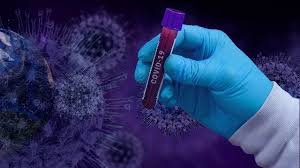State of Maryland Allows Point-of-Care Testing for COVID-19; Quidel Expands Training Program

SAN DIEGO: Quidel Corporation, a provider of rapid diagnostic testing solutions, cellular-based virology assays and molecular diagnostic systems, announced that the State of Maryland has allowed point-of-care testing for COVID-19.
The Maryland Department of Health has allowed point-of-care testing for COVID-19, stating:
“Any healthcare provider or healthcare facility, subject to certain terms and conditions, may perform COVID-19 point-of-care (POC) test analysis pursuant to Executive Order 20-03-23-02.”1 The order is effective on August 10, 2020.
Under the new directive, Maryland residents who believe they should be tested can now contact their healthcare provider, who can order a “COVID-19 test for any individual who believes it necessary, regardless of symptoms.”1
Quidel Expands Training Program
Separately, as part of its Nursing Home Program, and in collaboration with the U.S. Department of Health and Human Services (HHS), Quidel has expanded its Point-of-Care training protocol to help ensure that nursing home health care workers are appropriately trained in the use of the Sofia® 2 instrument and the Sofia® SARS Antigen FIA. Quidel now offers nursing home customers a multifaceted approach to training including online self-guided step by step videos, live virtual training events, certificate programs, Virena® data management system connection and other support functions via Quidel’s dedicated nursing home site.
Quidel currently sells several different Sofia assays in the United States, including the Sofia® SARS Antigen FIA under FDA EUA and other FDA-cleared and CLIA-waived assays, including tests for Influenza A and B, Respiratory Syncytial Virus (RSV), Group A Strep, and a 15-minute finger-stick whole blood test for Lyme Disease. In addition, Quidel also markets Sofia® tests for Lyme Disease, Legionella, and S. pneumoniae in Europe.















































